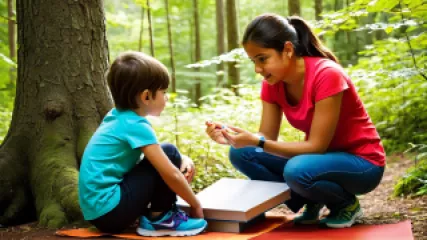10 Proven Strategies to Build Resilience in Kids
10 Proven Strategies to Build Resilience in Kids
Raising resilient children is a goal that many parents strive for, as resilience is a crucial life skill that can help kids navigate the ups and downs of childhood and beyond. Resilience is the ability to bounce back from adversity, setbacks, and challenges, and it is a quality that can be developed and strengthened over time. In this comprehensive guide, we will explore 10 proven strategies that parents can use to help build resilience in their kids.
1. Foster a Positive Mindset
One of the foundational elements of resilience is a positive mindset. Encourage your children to focus on the things they can control, rather than dwelling on the things they cannot. Help them reframe challenging situations as opportunities for growth and learning, rather than seeing them as insurmountable obstacles. Praise their efforts and progress, not just their achievements, to foster a growth mindset and a belief in their ability to overcome difficulties.
2. Teach Coping Strategies
Resilient children have a toolbox of healthy coping strategies they can turn to when faced with stress or adversity. Teach your kids different ways to manage their emotions, such as deep breathing, journaling, or engaging in physical activity. Encourage them to identify their own unique coping strategies and practice using them regularly. This will help them develop the self-awareness and self-regulation skills they need to bounce back from challenges.
3. Encourage Problem-Solving
Resilience is closely linked to the ability to problem-solve effectively. Provide your children with opportunities to identify and address challenges on their own, offering guidance and support when needed. This could involve helping them break down a problem into smaller, more manageable steps, or encouraging them to consider multiple solutions. By actively engaging in problem-solving, kids learn that they have the power to influence their circumstances, which can boost their confidence and resilience.
4. Foster Independence and Responsibility
Giving children age-appropriate responsibilities and the freedom to make their own choices (within reason) can help build their sense of autonomy and self-reliance. This could involve chores around the house, managing their own schedules, or making decisions about their activities and interests. As kids experience the consequences of their choices, they learn valuable lessons about taking ownership of their actions and developing resilience.
5. Prioritize Self-Care
Resilient children understand the importance of taking care of themselves, both physically and emotionally. Encourage your kids to engage in regular exercise, get enough sleep, and eat a healthy diet. Also, help them develop healthy emotional habits, such as practicing mindfulness, expressing their feelings, and seeking support from trusted adults when needed. By modeling and reinforcing these self-care practices, you'll help your children learn to prioritize their well-being, which is essential for building resilience.
6. Foster Meaningful Connections
Strong, supportive relationships are a crucial component of resilience. Encourage your children to build meaningful connections with family members, friends, teachers, and other trusted adults. These relationships can provide a sense of belonging, emotional support, and a network of resources that kids can turn to when facing challenges. Help your children develop empathy, communication skills, and the ability to collaborate with others, as these skills are essential for building and maintaining healthy relationships.
7. Encourage Gratitude and Optimism
A positive, grateful outlook can greatly contribute to resilience. Encourage your children to focus on the things they are grateful for, and to maintain an optimistic perspective, even in the face of adversity. This can involve keeping a gratitude journal, sharing moments of gratitude as a family, or reframing negative situations to find the silver lining. By cultivating a mindset of gratitude and optimism, you'll help your children develop a more resilient outlook on life.
8. Expose Them to Challenges (Within Reason)
While it's essential to provide a nurturing and supportive environment for your children, it's also important to expose them to age-appropriate challenges and difficulties. This could involve letting them experience the natural consequences of their actions, providing them with opportunities to take risks and step outside their comfort zones, or encouraging them to try new activities that push their limits. By facing and overcoming these challenges, kids develop the skills and confidence they need to be resilient in the face of future obstacles.
9. Encourage Perseverance
Resilient children are often those who have learned the value of perseverance. When your child faces setbacks or struggles, encourage them to keep trying, reminding them that failure is a natural part of the learning process. Praise their efforts and celebrate their progress, even if they don't achieve their desired outcome. This will help them develop a growth mindset and the determination to push through difficulties.
10. Lead by Example
Perhaps the most powerful way to build resilience in your children is to model resilient behavior yourself. When you face challenges, demonstrate how you cope with stress, problem-solve, and bounce back from adversity. Share your own experiences and strategies, and invite your children to participate in the process. By seeing you navigate life's ups and downs with resilience, your children will learn to do the same.
Building resilience in kids is a gradual process, but by consistently implementing these 10 proven strategies, you can help your children develop the skills and mindset they need to thrive in the face of adversity. Remember, resilience is not just about weathering the storm – it's about emerging from challenges stronger, wiser, and more equipped to handle whatever life throws their way.






